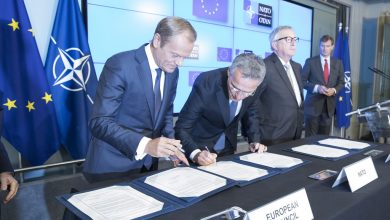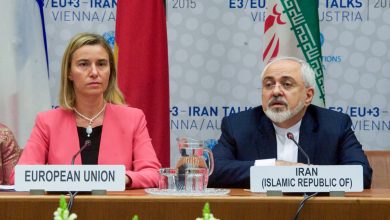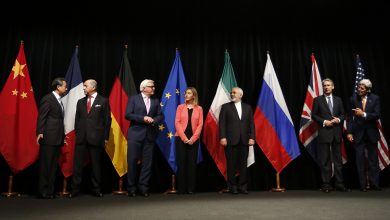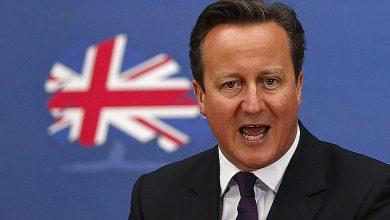Turkish Identity and Europeanness: How Europe Failed Turkey

When the Turkish governing Justice and Development Party (AKP) first entered general elections in 2002, one of their promises was to secure full membership of the European Union by 2005. Building up on its accession to the Customs Union in 1996, and the full candidacy status gained in 1999, a nation stuck in the historical dilemma of Middle Eastern and European identities seemed to have made its decision on the European Integration.
The Dream Of A European Turkey
“Our party sees the full integration with Europe through full membership in the EU as an integral, natural, and non-negotiable part of Turkey’s modernisation” read the AKP’s agenda in 2002, and “A European Turkey” was being chanted in all its conferences and meetings throughout the nation. Fourteen years after those hopeful and promising words, the AKP’s tone has changed dramatically, with President Erdogan telling the EU to go its own way, and that Ankara would do the same. This marked the end of an era in Turkey.
There isn’t an exact date or a specific event to pinpoint when the dream of a European Turkey, which seemed so strong in 2002, has fallen apart. The Great Recession, the War on Terror, the increasingly dire developments in the Middle East all conspired to push Turkey away from the West’s orbit, but there was no singular point of no return. Somewhere along the way, the AKP government gave up on its European ambitions to focus on its Turkish identity instead.
The roots of this shift run deep in Turkish politics, however, and can be traced back as far as the 1960s. Starting with that decade, Turkish attitudes to Europe went from utilitarian to institutionalist, and finally to downright Eurosceptic. Each stage was a result, not just of Turkey’s domestic politics, but also of of deepening European identity politics centered on Turkey’s ‘otherness’. This perception on the part of Western countries meant that, for all the European Commission’s enthusiasm in 1999, accession talks were doomed from the start, and caused Turkey to lose faith faith towards both the cultural and the institutional sides of the EU.

Turkish Cultural And Civic Identity
Before investigating each stage of Europeanism in Turkey, it is essential for us to understand how the two different components of identity (civic and cultural) worked against Turkish accession. Dr. Bruter, of the London School of Economics, argues that identity is not as fixed and rigid as the populist politicians of Europe like to think. It is not just religion, language or culture that make up our identity. Religion, language, or cultural attitudes only make up the cultural component, which is the rigid and fixed component that is inherited and will likely not change over a lifetime.
However, these rigid components are not all there is to identity. There is another component which is civic identity. In our case this means the identification with the institutions, processes and the structure of the European Union. It is flexible and can change with the mutable perception of the benefits of membership. Under a utilitarian approach towards integration, one’s civic European identity will increase over time as they get more exposed to the advantages of institutions like the single market or free movement.
In the case of Turkey, the cultural component of a European identity never really existed. As the only overwhelmingly Muslim nation of the continent, its culture always differed from that of other continental powers, even at times when Ottoman – Turkish participation in the Congress was taken for granted. Given this, civic identity was the only real arena where Turkish and European identities could overlap. However, even civic identity towards European integration has now faded away, with Turkey diverging more and more from established Western standards of democracy and liberalism, and European institutions unable to rally the Member States to the cause of European enlargement. The hopes for creating a common a collective European civic identity in Turkey no longer exist.
As the bridge between East and West, Turkey always had the capability of bringing two civilisations together. In the early years of the 21st Century, it was precisely this bridging role that stood at the core of the American thrust to encourage Turkey’s EU membership. Ankara’s traditionally inclusive and peaceful foreign policy towards its neighbors, both of the West and the East, was presented as a peaceful, different model for the struggling Muslim world, but also an opportunity for the West to reconcile with the Middle East. However, now that relations are deteriorating each day, the EU’s efforts are hampered by identity politics and a restrictive conception of European integration. What is alarming is that the ship has already sailed, and what is left for both parties is now to yell at each other from the different sides of Bosporus.
Pandering To Fears At Home
‘Turkey is simply not European enough’ is the default rhetoric in Europe today. There has of course been a marked increase in anti-Turkish rhetoric in Europe after 9/11, due to a heady mix of Islamophobia, Turcoscepticism – the criticism of Turkey in the integration process – and human rights concerns. While Erdogan’s policies absolutely warrant criticism, one must keep in mind that opposition to Turkish accession precedes the AKP’s rise to power.
Former French President Giscard was the first leading European politician to say it frankly in 2002: “Turkey must never be a member of the European Union.” It was not a matter of time, of Turkey’s adjusting to the political culture of Europe, of economic or legal harmonisation. For Giscard, never meant never, because Turkey is not a European country. To admit this huge Muslim, non-European state, he said, would mean the end of the EU. He was one of a few leading European politicians who believed that Europe was a cultural concept more than a civic or an institutional one. He believed that to be European, a country had to share history, culture, and religion with the others. In this belief, of course, Turkey should have had no chance to be considered as a European country.
![Former French President Valery Giscard d'Estaing takes part as a guest speaker in a meeting of the Bundesrat, German upper house of parliament, in Berlin, Friday, 27 May 2005. [EPA/Wolfgang Kumm]](https://mycountryeurope.com/wp-content/uploads/2019/09/Former-French-President-Valery-Giscard-dEstaing-takes-part-as-a-guest-speaker-in-a-meeting-of-the-Bundesrat-German-upper-house-of-parliament-in-Berlin-Friday-27-May-2005.jpg)
Like Giscard argues, amongst many scholars and European elites, the absorption of Turkey into the EU is considered to be the hardest and costliest of currently conceivable enlargements. As the Spanish Newspaper El Mundo wrote in 2004, “The EU can assimilate the entry of small countries like Romania or Bulgaria but not a population of 70 million, with a mentality and standards of behavior alien to its identity”. If Giscard is right about what being European means, then these anti-Turkish accession arguments are fair, and Turkish cultural identity really cannot be assimilated into the common cultural identity of Europe.
However one must ask: is this cultural assimilation necessary to be a EU member? Does one have to come from the same civilisation as the others in order to share an identity and to be considered as European? European integration has been successful in creating a collective European identity especially in the Member States, but there is no common understanding of what it means to be European. Identity takes different forms for different people with various meanings and motivations.
Identity is, as we have established, more than just culture, language, or religion. A civic attachment would provide identification with the institutions, processes and the structure of the EU. There is no better way to influence this flexible identity than to clearly communicate the benefits of membership and unity, but things get much harder when dealing with cultural identity. To be ‘civically European’ means seeing the Union and the integration project as a relevant political system defining one’s rights. On the other end, to be ‘culturally European’ is a thornier issue with much less inclusiveness, and much more vulnerable to the influence of historical enmities.
A Separate Turkish Identity?
The age-old question of what it means to be European will get different answers from Member State to Member State. Even though Turkey has not always culturally identified itself as a European country, accession could still have been possible with civic overlap, if the EU and Turkey had negotiated in good faith. Based on the empirical evidence from Eastern European countries like Lithuania and Poland, with their consistent support for the EU, we can argue that there is no better place to foster a European identity than within the Union. The daily experience of membership is the best antidote to alternative narratives. Turkey, however, never had the chance to experience this.
Despite the explicit othering from the EU against Turkey, the argument that Turkish identity is incompatible with the EU is simply incorrect. The very identities of Turkey and Europe are inextricably tied to one another by centuries of shared history. While it’s certainly true that Turkey’s straddling of East and West has given them a unique position, this baggage need not be an obstacle.
Turkey’s Ottoman past, its national pride, or its strong Muslim cultural identity were not necessarily against the possible emergence of a strong European civic identity, if Ankara had joined Eastern Europe in gravitating Brussels at the end of the Cold War. While Turkey is far from blameless, the choice by some Member States to put vetoes based on identity politics and anti-immigration fears at home, rather than on the Copenhagen Criteria, has undermined pro-European sentiment in Turkey, and damaged its faith in the EU institutions that failed to rally the Member States behind their plan for Turkish accession.
Turkish-European relations are complicated. They a product of centuries of fear, othering, and hostility, but also of trade, diplomacy, intercultural exchanges, and international cooperation. In this complex setting, it is rather conventional to blame the Turkish government for having a nationalist and uncompromising approach when it comes to negotiations. However, one must keep in mind that those forces within Turkey that look to the EU have felt European despite, and not because of the EU, or at least despite some of its Member States. Now, the bridge that has blended the Orient and the Occident for centuries is receding more each day, and Europe is looking on as the ship sails away from the Bosporus, forever.





